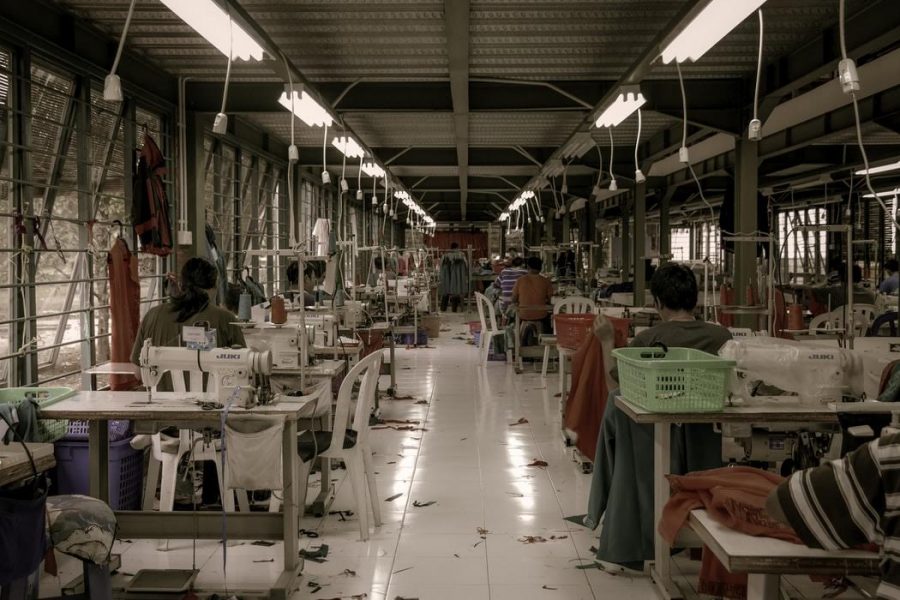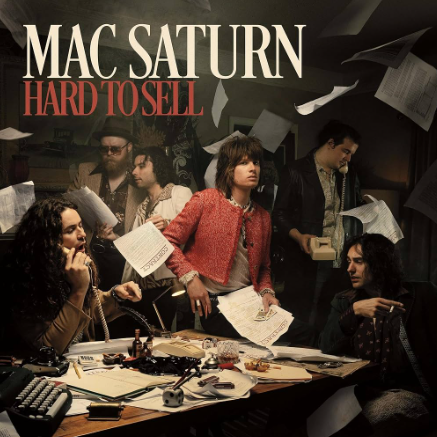The Dangers of Fast Fashion
Is low-cost clothing really worth it?
An example of the factory conditions that some cheaply made products are produced in. Picture Credit: unsplash.com
March 4, 2021
As much as we love to buy cheap clothing and clothing that fits our budget, something we need to be mindful of is how dangerous fast fashion is and how it is destroying our planet, as well as exploiting and harming factory workers.
What is Fast Fashion?
Essentially, fast fashion is mass produced clothing that copies high fashion designs and produces them rapidly at low cost. Obviously, this comes across as a great deal to consumers, because who wouldn’t love stylish, trendy clothing for a lower cost. But, as consumers, we must be mindful of our shopping decisions and become educated about the risks of buying this type of cheap clothing. To be brief, fast fashion is destroying our planet and harming the environment we live in.
Fast Fashion is Destroying Our Earth
According to Business Insider, “Fashion production comprises 10% of total global carbon emissions.”
It is believed that carbon emissions will only go up from here and that by 2030, emissions will boast to about 60%. Not only does fast fashion contribute to global carbon emissions, but it also contributes to the huge landfill in our oceans. Since the fabric fibers are synthetic and about 85% of textile waste ends up in a landfill and eventually dumped into our ocean, the fabric fibers will not decay, therefore staying in our oceans forever.
“The fashion industry is the second largest consumer industry of water,” Business Insider said. “[It requires] 700 gallons to produce one cotton shirt and 2,000 gallons of water to produce a pair of jeans.”
Fast fashion uses such a vast amount of water while also contributing to the large amount of pollution in rivers and streams. Textile dyeing is the second largest polluter of water due to how the dyed water is dumped back into streams of water and river.
The Exploitation of Factory Workers
Along with harming the earth we live in, it is exploiting the hard-working factory workers. Most of these workers tend to be overworked, put in dangerous working conditions, and are never paid the salary they should be getting. Additionally, most of these workers are women and even children, with cases found of forced child labor in countries like Indonesia, Brazil, Philippines, China and more. Due to dangerous conditions, workers are more prone to accidents leading them to be harmed, or even killed, like in Bangladesh in 2013 where a building collapsed killing 1,134 workers.
Living with Guilt
While it is extremely important to be mindful of your shopping habits and fast fashion habits, it is extremely mindful to not shame anyone for buying into this fast fashion. Shopping ethically is not easy, nor is it cheap. Some people need these low-cost clothing options because it is all that fits into their budget. So, to willfully shame someone for buying low-cost clothing, can be incredibly insensitive.
To reiterate, the message created isn’t intended to guilt you and make you feel bad for contributing to the negative consequences of fast fashion. Everyone is guilty of it. Ethical fashion is not easy and the companies themselves usually sell extremely expensive products, so participating in fast fashion is understandable and something we all have taken a part of. Nevertheless, it is important to help people become more aware and conscious of the environmental impact of fast fashion and the corrupt companies encouraging it. But if you are actively trying to cut fast fashion out of your life, some starting tips include thrifting and buying second hand clothing as it still creates a positive impact, even if it may seem like a small step. If possible, avoid fast-fashion companies as much as possible but again, it is totally understandable if it is needed and there should be no need to feel guilty.













